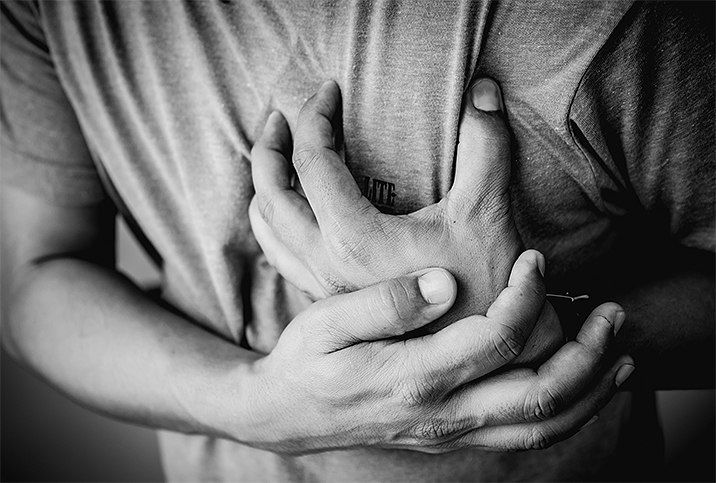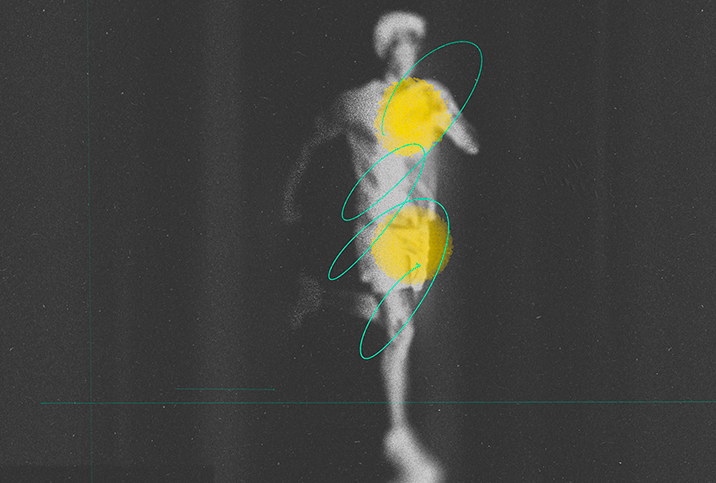The Relationship Between Blood Thinners and Erectile Dysfunction

It's not unusual for older men to experience problems with erectile function. It's also not uncommon to take some sort of medication—maybe a few—for other health issues that develop with age.
Some 2 million to 3 million Americans need to take blood thinners (anticoagulant medication) each year, according to the National Blood Clot Alliance. Your doctor might prescribe them if you are at high risk of developing a blood clot.
This type of medication typically works to reduce your chances of developing a serious condition such as a stroke or heart attack. However, the common term "blood thinner" is misleading, as this class of drugs doesn't actually make your blood thinner.
Knowing how important blood is to erections, it's fair to wonder if there is a relationship between blood thinners and erectile function, or erectile dysfunction.
How do blood thinners help?
Blood clots are useful when they work like they're supposed to work. For instance, they form when you cut yourself, acting to close and repair the wound. Most people have no problems with normal blood clotting, and it's a healthy part of the healing process.
However, if a clot moves from where it is meant to be or one develops in your bloodstream, it can be dangerous. Large clots can get stuck in small blood vessels, which may block blood flow to essential organs. This could lead to a stroke, a heart attack, a pulmonary embolism or deep vein thrombosis (DVT).
Your healthcare provider may suggest you take anticoagulants if they believe you are at risk of developing one of these problems. The most commonly prescribed one is warfarin, but alternatives include rivaroxaban, dabigatran, apixaban and edoxaban.
As mentioned earlier, these medications don't actually make your blood thinner. Anticoagulant medication interrupts the process of forming blood clots. This disruption mechanism may happen differently depending on the type of blood thinner your doctor prescribes.
Erectile function and heart disease
OK, so what do anticoagulants have to do with erectile function? First, let's look at what you need to get and maintain an erection. The main components are:
- Hormones, specifically testosterone
- Good nerves in your penis
- Good blood flow to your penis
- A good state of mind and the ability to develop arousal
Erectile dysfunction (ED) affects more than 30 million American men, many of whom have heart disease and its adjunct conditions, including coronary artery disease, angina, atherosclerosis and more.
"Individuals with high cholesterol will have ED more so than those same men with lower lipids in their blood," said Russel Williams, M.D., the founder and medical director of the Y Factor, a men's urological wellness and fertility company in the greater Houston area.
Heart disease and ED are intrinsically connected.
"Data shows that younger men who develop ED have a higher chance of having a heart attack in the next five years because it's a warning sign, like the canary in the coal mine," said Michael Werner, M.D., the medical director and founder of Maze Men's Sexual & Reproductive Health, based in New York City and Purchase, New York.
If your arteries develop a buildup of lipids (fatty substances) known as plaques, you can develop atherosclerosis (thickening and hardening of the arteries). As the penile arteries build up with plaque, blood flow becomes restricted. Williams explained that lipid-filled blood does not fill the penile chambers as well as lipid-free blood.
As most of us know, good blood flow is necessary for healthy erections.
With studies showing that ED and cardiovascular disease are strongly associated, it's not unlikely that men can have the two conditions at once. If you have high cholesterol, are at increased risk of heart disease or have undergone heart surgery (like coronary angioplasty and stent insertion), your doctor might have prescribed blood thinners.
So if you take blood thinners to reduce clotting and improve blood flow in your arteries, could they double as erectile dysfunction treatments?
What is the relationship between blood thinners and ED?
"Surely, with millions of men on prescription-grade blood thinners, aspirin and fish oil, we should begin to see reports of better erections, with no other treatments being used," Williams said.
Those reports haven't materialized.
"We don't see recommendations to use blood thinners for better erections in literature review guidelines," he explained. "Healthcare providers should counsel men that blood thinners do not help, nor hurt, erection quality."
Some men experience a prolonged erection from blood "sloughing" in the penis, a condition caused by sickle cell anemia, Williams said. Even in this group of men, blood thinners do not help.
"This is another example of how blood thinners don't significantly affect erection physiology," he added.
"Blood thinners don't make the blood thinner, just less likely to clot, so it doesn't change the blood flow to the penis," Werner explained. "There is no evidence that blood thinners can improve or worsen ED or libido, or have any other sexual side effects or benefits. Of course, if they help to keep you alive and healthy, this is a good thing for your sex life."
Other ED treatment options include oral medications, injections, suppositories, pumps and implants.
The bottom line
It might seem like blood thinners could help with erectile function, but science shows they aren't a capable treatment for ED. However, if you begin to experience ED, it's wise to get checked out by your healthcare provider, as it can be a warning sign of underlying heart disease.
If you're experiencing ED as a result of either medications or a cardiovascular condition, an ED treatment you may want to consider is the wearable device Eddie by Giddy®. It is an FDA-registered Class II medical device designed to treat erectile dysfunction and improve male sexual performance.
Its specific shape optimizes blood flow, putting pressure on the veins of the penis but not the arteries. Eddie is a safer treatment that does not have the side effects of prescription pills, nor does it require a prescription.
There is no need to suffer in silence or be embarrassed. Treating ED is common for your doctor. A variety of medications can help with ED and cardiovascular disease, so a trip to your healthcare provider could address multiple concerns.


















